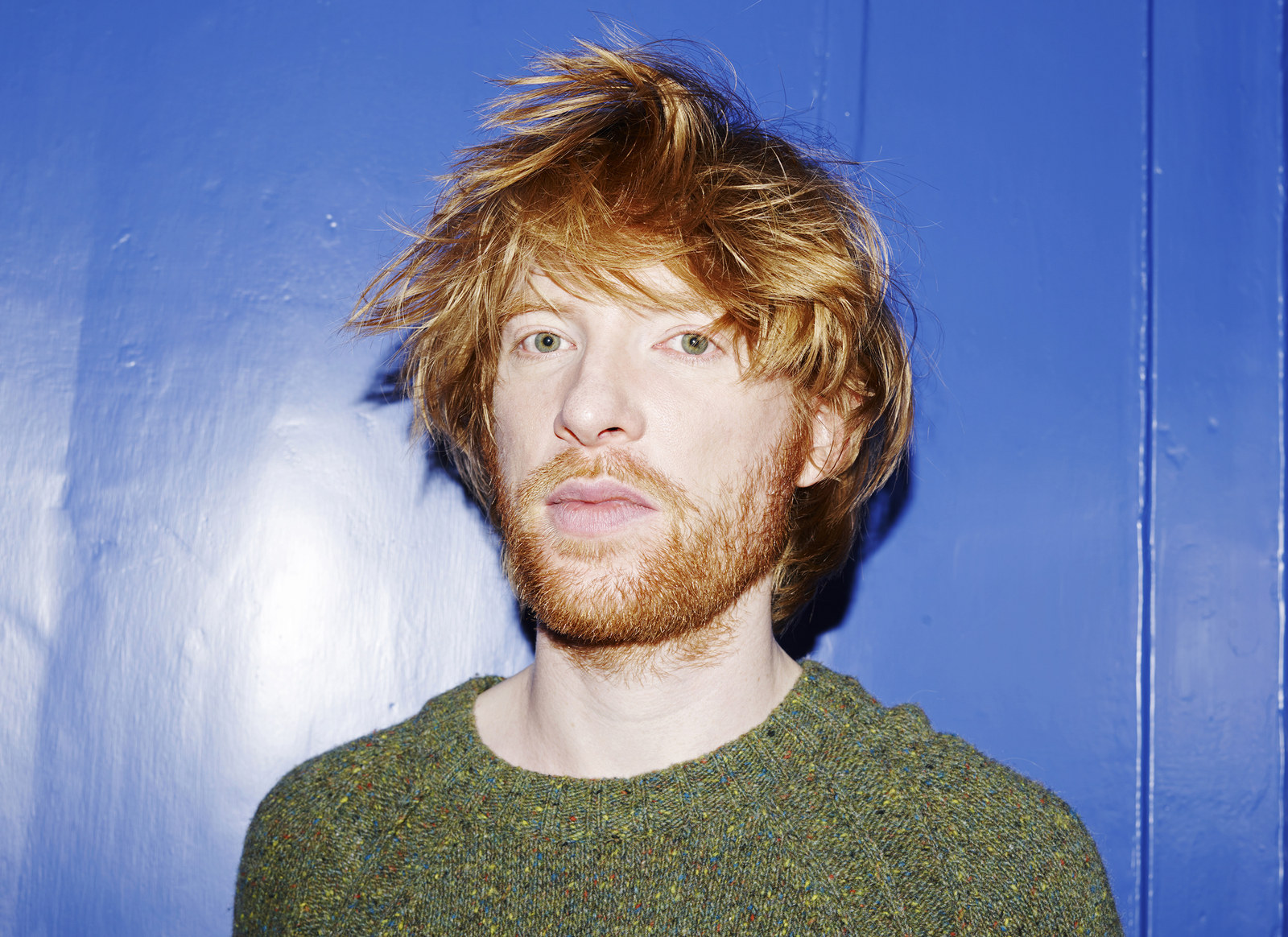Almost every day of his life, Domhnall Gleeson finds himself repeating the same words aloud, like a personal catechism: “It’s like tonal, but with a D instead of a T.” Getting people to pronounce his first name without the silent, Gaelic “m” has been a lifelong struggle for the 32-year-old actor. Even when Gleeson actually says his name aloud to another person, it sometimes doesn’t help, no more so than when dealing with Starbucks baristas.
“I got Tonio once,” Gleeson said, tucked inside a booth in a quiet West Hollywood restaurant, his long strawberry-blonde hair flopping onto his forehead in bemused frustration. “Tonio. Like, short for Antonio. Do I look like a Tonio? I thought that was mad. I've got this ginger beard. I've never thought of myself as a Tonio. Maybe that will be my next role.”
By the end of this year, it’s likely many more people will know how to pronounce Gleeson’s name. The Dublin native has had starring or standout supporting roles in four of the year’s most acclaimed and anticipated feature films. In April, he starred in the cerebral sci-fi thriller Ex Machina as Caleb, a mid-level programmer who is pulled into a psychosexual web of intrigue with an artificially intelligent robot. And in November, Gleeson appeared in the heartrending period romance Brooklyn as Jim, an Irish gentleman who tugs at the heart of Eilis (Saoirse Ronan), an immigrant who is also in love with an American back in her adopted country.
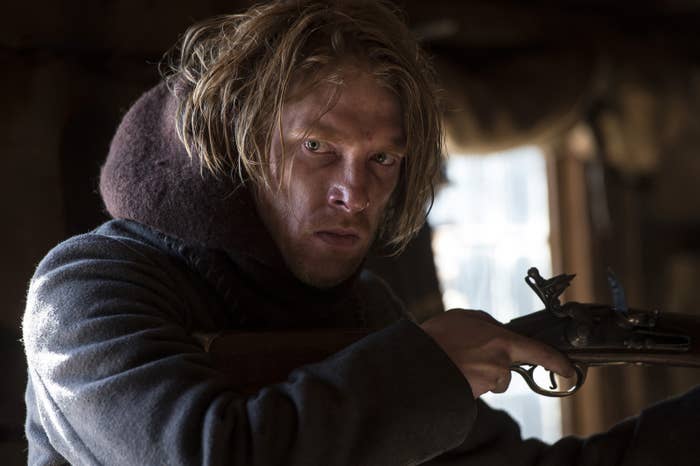
Both films opened to broad acclaim, more than enough to make this a superlative year for any actor. But this month, Gleeson also appears in two radically different blockbusters that arrive in theaters on twin bullet trains of breathless expectation. In Star Wars: The Force Awakens, Gleeson plays General Hux, the fascistic military commander of the First Order, the remnant of the Empire that crumbled at the end of 1983's Return of the Jedi. And in The Revenant, opening in limited release on Dec. 25, Gleeson plays Andrew Henry, the leader of a doomed fur-trapping expedition in the 1820s whose desperate decision concerning the fate of his critically injured guide, Hugh Glass (Leonardo DiCaprio), has drastic ramifications for both men.
It all adds up to the kind of transformative year that actors rarely, if ever, experience — and Gleeson's 2014, featuring roles in Calvary (opposite his father, Brendan Gleeson), Frank (opposite Michael Fassbender in a giant papier mâché mask), and Unbroken (directed by Angelina Jolie), wasn't too shabby, either. But if it seems like he’s approaching Jude-Law-in-2004 levels of ubiquity, or that he will emerge in January officially anointed as one of Hollywood's hottest, most multifaceted new stars, Gleeson does not buy it.
"I think it's very unlikely," he said. "Whoever is going to see Star Wars is going to see Star Wars. Whoever is going to see The Revenant is going to see The Revenant. They're not going to see how versatile I am as an actor. So that may be exciting for me, but it reflects in no way the feelings of the world towards it."
Though he spent the last 12 months battling the biting cold with Leonardo DiCaprio and basking in geeky adulation with Harrison Ford, Gleeson's perception of his humble position in the Hollywood galaxy does not come across as false modesty. It's how he has been able to reach this incredible moment in his career and remain disinterested in how that moment could maximize his stardom.
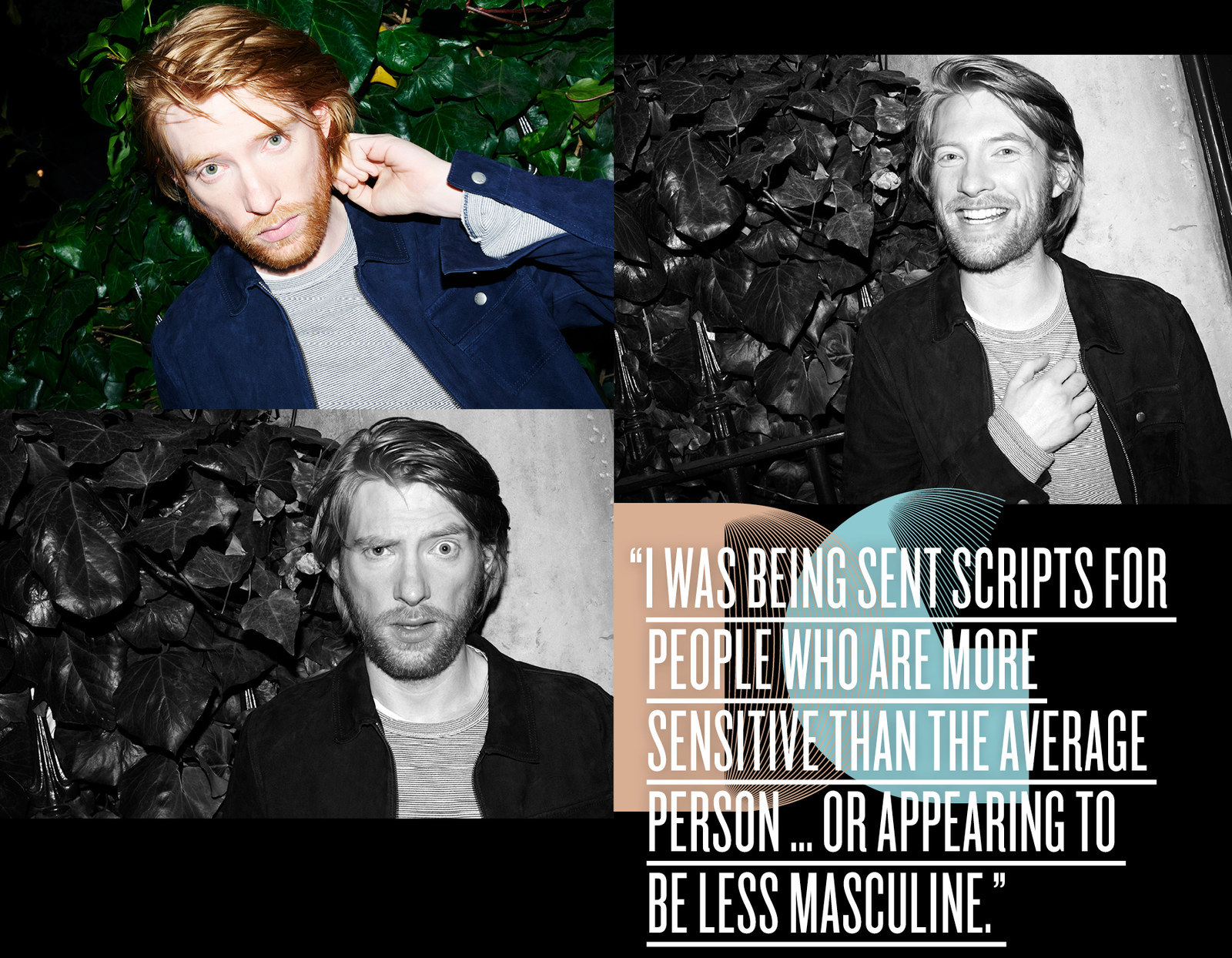
Gleeson started his acting career by accident, when, at 16, he accepted the Irish Film Award for Best Actor on behalf of his father and made such an impression in his speech that he promptly landed an agent. Whom he promptly ignored.
"I said to the agent, 'I don't want to be an actor,'" Gleeson recalled with a laugh in a second phone interview earlier this month. "But it's cool to have an agent. Maybe some girl will be impressed — which didn't work."
Instead, Gleeson enrolled in the Dublin Institute of Technology and majored in media arts to study filmmaking. But when he was 19, Gleeson's agency sent him the script for Martin McDonagh's play The Lieutenant of Inishmore, a raucous, bloody satire of the Troubles that featured a part perfect for Gleeson, a daft teenager with a mullet who discovers the dead body of a cat. "It made me think, Well, if I could act in this, I'd be really happy," he said. "And I think that I could do a good job." He managed to land the role in the debut London production of the play in 2002, performing during his summer holiday.
"He was brilliant in it," said Irish director John Crowley, who eventually cast Gleeson in Brooklyn. "Hysterically funny. Just leapt out as a really interesting young actor."
The experience convinced Gleeson that he had enough talent and interest in acting to pursue it as a career, especially after he followed the production to its premiere off-Broadway and on Broadway in 2006, earning a Tony nomination for Best Featured Actor in a Play. But while he went on to act in a few television series, short films, and features after his debut in the West End, once The Lieutenant of Inishmore closed on Broadway, Gleeson did not work again in film or TV for three years.
"When I began to think, I'd love to be an actor, I could only imagine myself in the sort of role that I played in The Lieutenant of Inishmore," Gleeson said. "I guess in my head, I just thought, Well, if I can get work of this quality all the time, I'd be set for life. And that might have been part of the reason why I didn't work for quite a long time after that."
He laughed. "I found out very quickly that if I was going to work, I was going to have to work very hard to try to do different things, not just play a version of myself. That would be the only way to keep interested in acting, but also, the only way to keep working."
Once he put that work in, the roles began to trickle in. Gleeson was cast in small, key turns in the 2010 sci-fi drama Never Let Me Go, and the Coen brothers' 2010 remake of the Western True Grit, and he also played musician Bob Geldof in the 2010 BBC TV movie When Harvey Met Bob, about the 1985 Live Aid charity concert. His first big studio film was a doozy: the two-part Harry Potter and the Deathly Hallows movies, playing Bill Weasley, Ron's werewolf-scarred older brother. But Gleeson considers his real big break to be a much different literary adaptation: director Joe Wright's lushly appointed 2012 production of Anna Karenina, as the earnestly romantic aristocrat Konstantin Levin.
"I had never played any romantic parts before Joe decided that I could," said Gleeson. "That was a massive shift in my career, in terms of the jobs I was able to do."
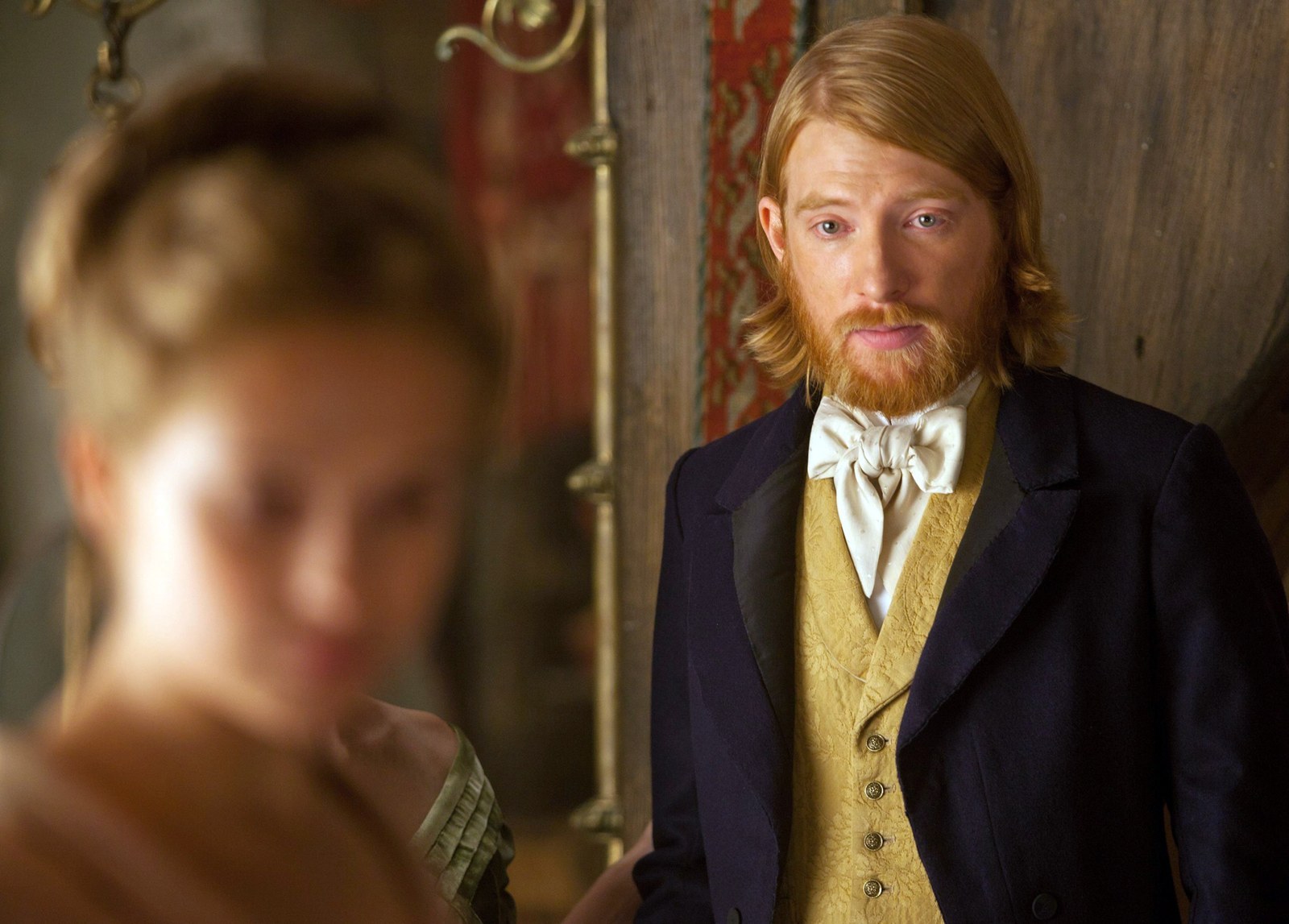
The part, a wealthy landowner in 19th-century Russia who would much rather till the fields than be seen in court, tapped into two of Gleeson's strengths: his uncanny ability to radically transform his appearance to suit the roles he's playing with not much more than a haircut and a shave (or a lack of either), and making shrewd use of his tall, wiry frame and delicate features to give him ready access to an emotional vulnerability many of his peers don't bother attempting.
"I was being sent a lot of scripts for people who are more sensitive than the average person … or appearing to be less masculine, or any of those kinds of things," Gleeson said. "I'm totally comfortable with that. I'm fascinated by that."
Starting with director Richard Curtis's time travel fantasy-romance About Time, Gleeson began to specialize in playing thoughtful, charming blokes bedeviled by good intentions, whether their own or someone else's, from a wannabe rock star in Frank, the artificial echo of a woman's dead husband in the Black Mirror episode "Be Right Back," or Caleb in Ex Machina, whose desire to rescue the beautiful robot Eve from her maker (and his boss) blinds him to her real motivations.
"I thought he could really capture the character in a particular way who was both vulnerable and intelligent," said Ex Machina writer-director Alex Garland, who first worked with Gleeson when he scripted 2010's Never Let Me Go. "He's got a lot of control over what information he's handing over to the audience. … He's just incredibly comfortable with all that stuff, because he gets it very instinctively."
Gleeson also began to intuit that while his roles were getting bigger, and coming more quickly, he was risking the perception that he could only play nice guys — or, at least, guys who believed they were nice guys. It's why he leapt at the chance to play an imprisoned serial killer named Freddie Joyce in writer-director John Michael McDonagh's 2014 Irish drama Calvary. It wasn't a big role — just a day's worth of shooting — but Gleeson got to act opposite his father, who played a priest who has his faith rattled after he grants Freddie's request to see him.
"I mean, that was like a gift to me," Gleeson said of the role. "I was so thankful to John for imagining me as a pedophile." He smiled, still gratified by chance to play something unlike anything he'd attempted before, and to do it with his father. "I should probably take offense, but I was delighted."
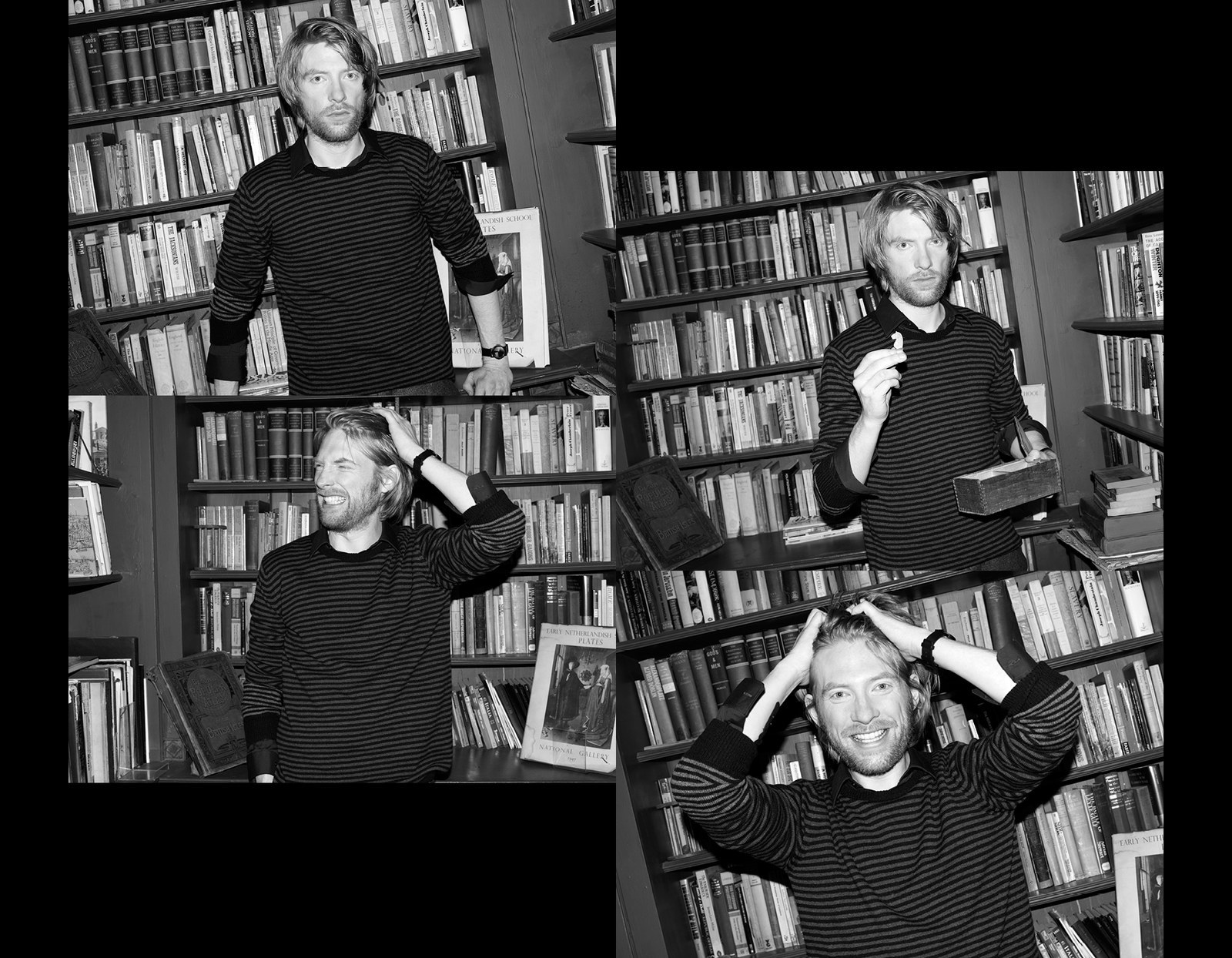
After Calvary, Gleeson’s career began to snowball; he shot Frank, Unbroken, Brooklyn, and Ex Machina. But then, he said he faced “a few worrying weeks where I didn't know if I was going to work for a while” — until J.J. Abrams came calling with a role in Star Wars: The Force Awakens. And once again, Gleeson was cast against type, as the evil General Hux. Like every other human who has worked on The Force Awakens, however, when we spoke over lunch in September, Gleeson talked about the movie, and his role, with the circumspection you'd expect from a White House official fielding questions about the NSA. But as most every human now knows (and consider this a mild spoiler alert for the following sentence), Hux is perhaps Star Wars's deadliest villain ever — "sideburn-twirling" as Gleeson described him — unapologetically fixated on eradicating all of the First Order’s enemies. And Gleeson got an undeniable kick out of getting to chew some scenery. "You just get right in there and say, 'Right, fuck it, let's go,'" he said, grinning brilliantly. "That is fun."
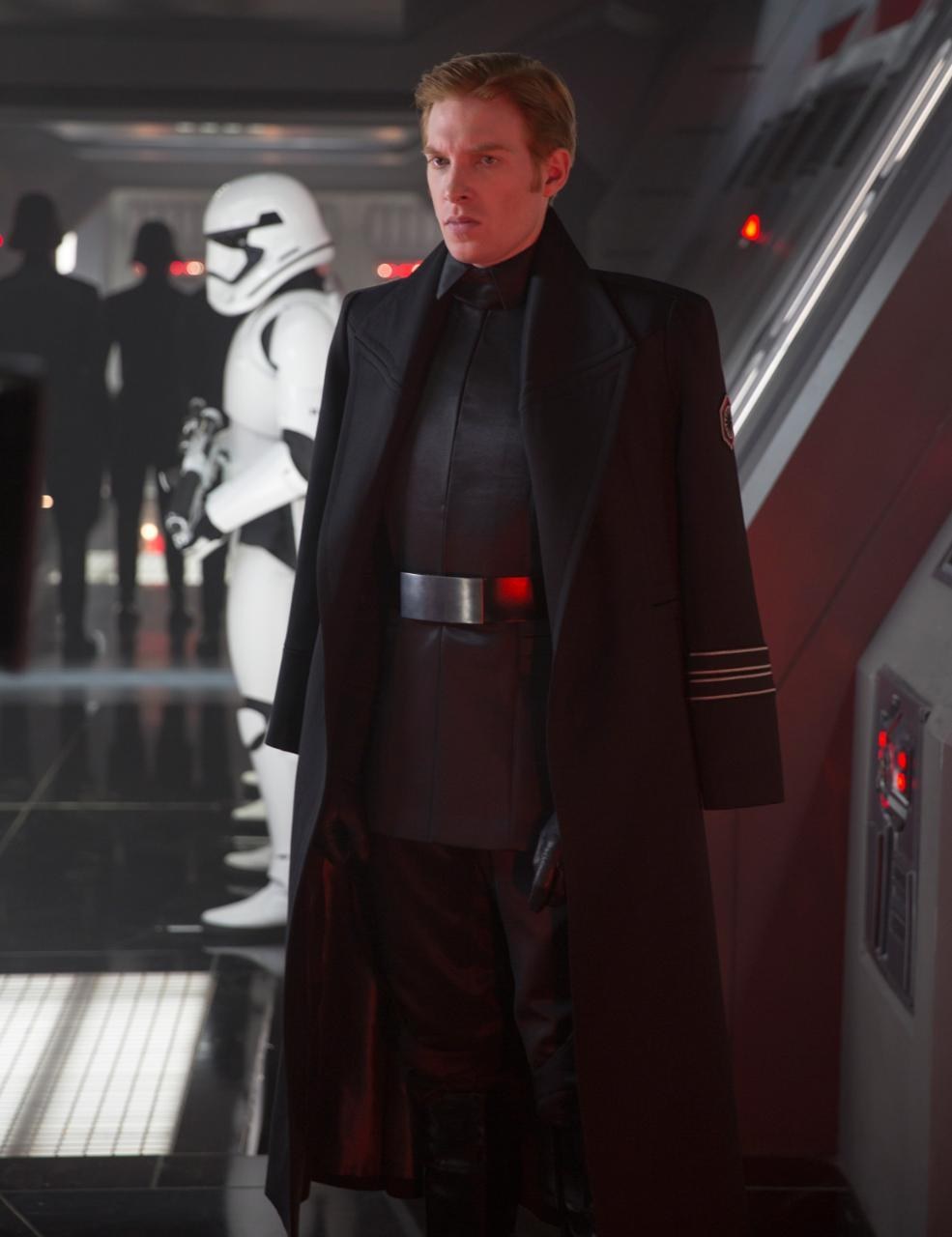
The Revenant, however, was a different situation altogether. Gleeson got the script for the film during a break from shooting The Force Awakens, and he said he was captivated immediately by the story, and the arc of his potential character, Capt. Henry. “I started reading the script, and it was just one of those Holy God! [reactions],” he said. “I thought this character was fascinating, very different from what I'd done before. I thought, Jesus, can you imagine?!”
The film, based on a brutal story of survival of real 19th-century frontiersman Hugh Glass — who was attacked by a grizzly bear, left for dead by his compatriots, and forced to crawl his way back to civilization — is already infamous for being almost as grueling. Director Alejandro González Iñárritu and cinematographer Emmanuel "Chivo" Lubezki chose to follow up their Oscar-winning film Birdman by shooting using entirely natural light, a creative decision that led to cinematic imagery of staggering scope and beauty, and an unforgiving logistical nightmare for the cast and crew.
But Gleeson had no idea that the filmmakers planned to make the movie that way until he arrived on location in Canada. Far more than Star Wars, this experience, which Gleeson weathered over a total of five and a half months starting in late 2014, was a once-in-a-lifetime acting challenge unlike anything he (or any of his co-stars) had ever been through. And because Iñárritu also decided to shoot the film in sequence, production started with the opening set piece, a harrowing ambush attack by Native Americans on Capt. Henry's fur-trapping expedition that was shot in a series of long, unbroken takes.
"Normally, it will often take a couple days to get up and running on a film, and there was no time for that on this," Gleeson said. "We were straight into a level of detail, madness, and discomfort that I don't think any of us had known before. There were a lot of horses galloping, a lot of arrows flying about, and guns going off, and people falling into fires and dragged along naked. You thought, Well, it will get easier after this. And it absolutely did not. It just kept on getting harder."
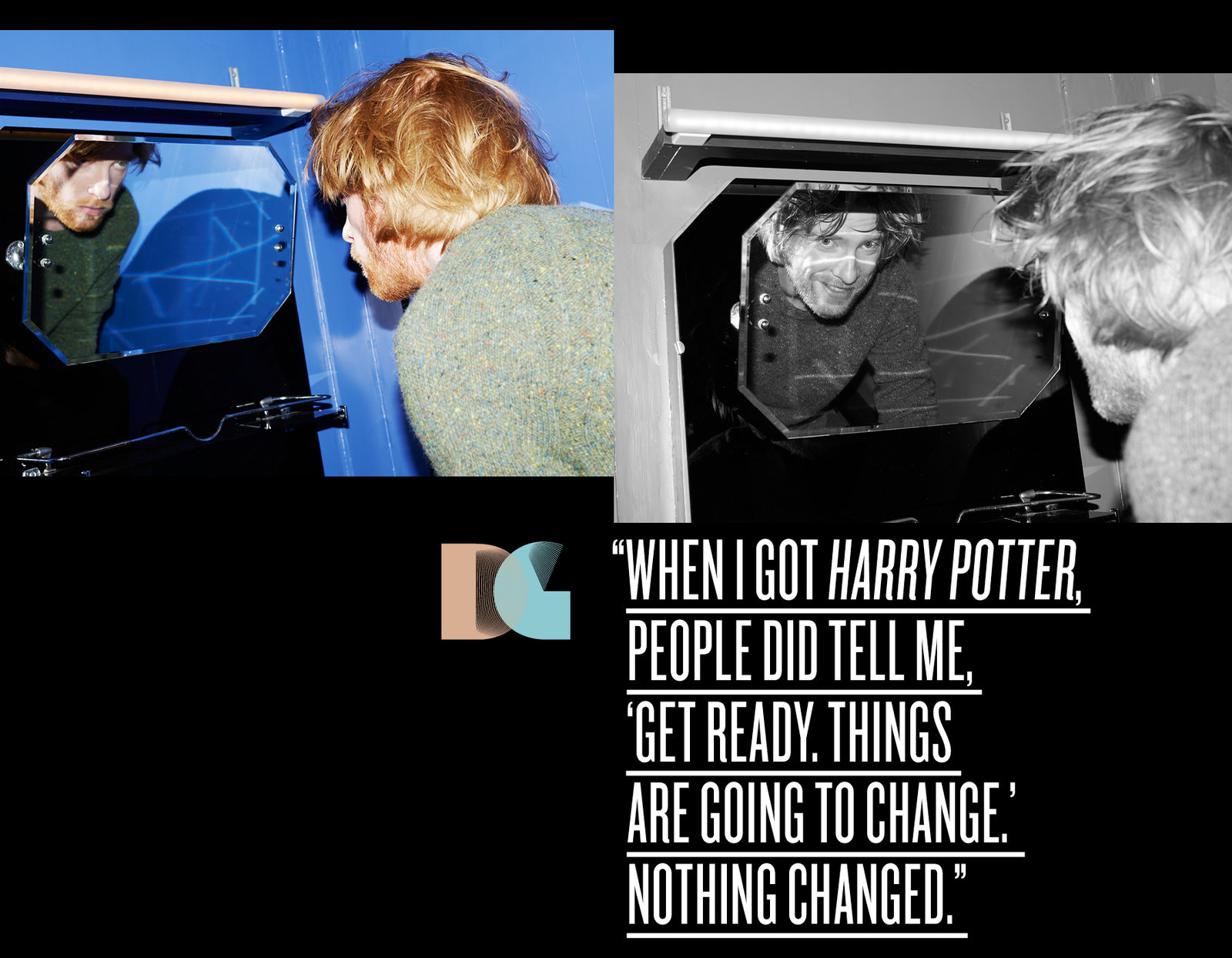
With roughly just two hours a day in which the production could shoot any given scene, the cast spent the rest of their time on set rehearsing the elaborate sequences they would be filming later with Lubezki's crew. "There's a lot of waiting for the right moment, and then there's a lot of adjusting and trying to get it before it all falls apart again,” Gleeson said. “When you did have time off, you were really tired, like, physically and mentally. Obviously, it just sounds like an actor bitching about a life which is great in so many ways. But one room for five months, and you can't cook… Like, room service for five months sounds great. It's not great."
Gleeson pointed to the camaraderie he shared with the cast and crew for what sustained him throughout the shoot. But Gleeson's relative isolation amid what he characterized as Iñárritu's desire for "organized chaos" provided crucial emotional fuel for the actor's biggest scene (mild spoiler alert for the rest of this sentence), in which Capt. Henry explodes into a sustained fury unlike anything Gleeson has ever managed as an actor, shaking with brute rage and commanding the screen with an authority he’s never really been afforded before.
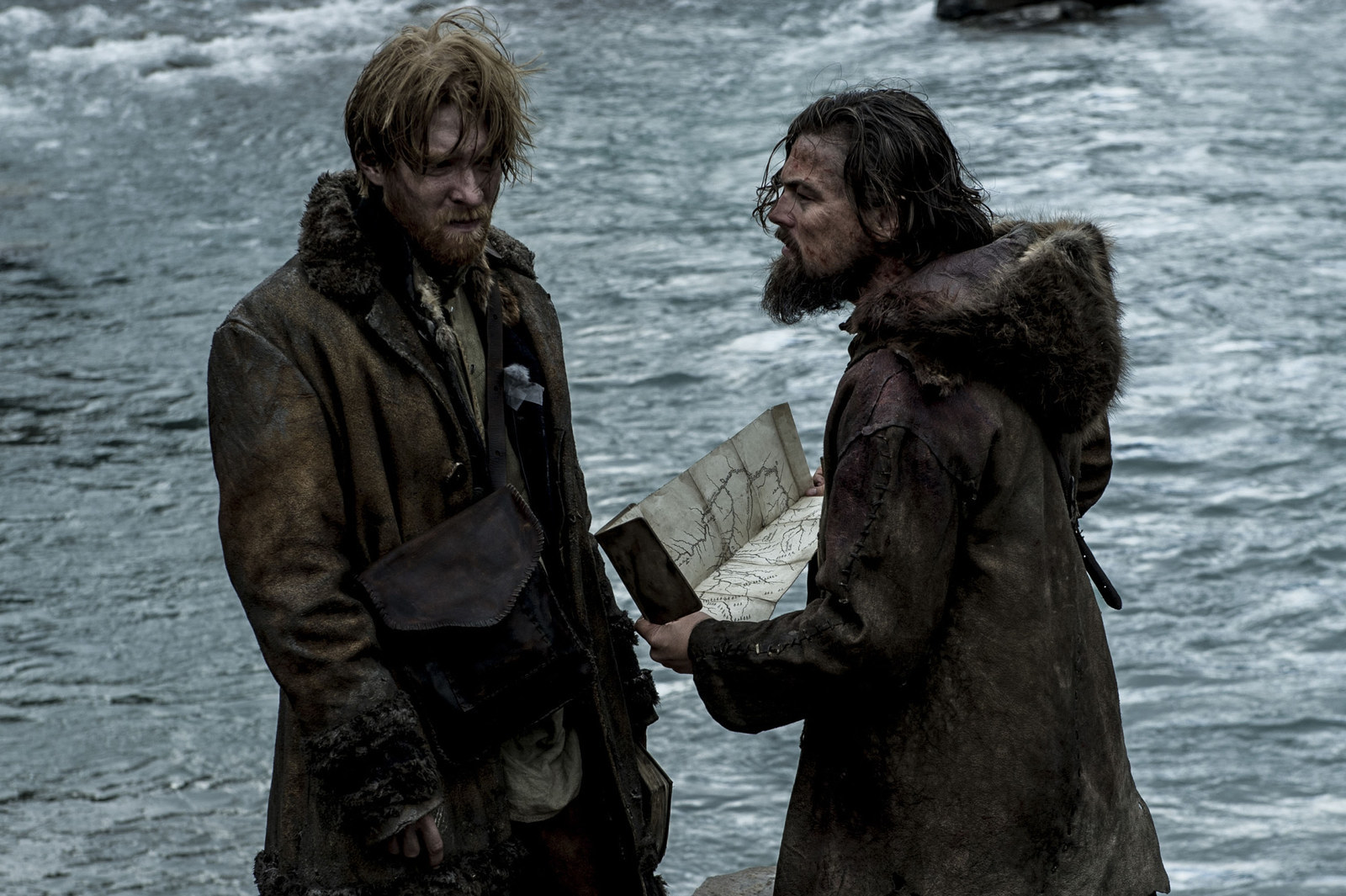
"There had been a lot of frustration built up over the first few months of shooting," Gleeson said, speaking as much for himself as for the setbacks and indignities Capt. Henry endured up to that point in the film. "My character is not being respected by his men. He's making bad decisions, sometimes, and he's making decisions which I know in my head will come back later to not just bite him in the ass, but to make him feel like less of a man. It felt really good to let go and take out that frustration. It felt empowering, actually, like a necessary release."
For all the misery Gleeson endured with his compatriots making The Revenant, the actor still believed it was far outweighed by creative rewards the experience provided him. "The shoot was grueling, but it was designed that way," he said. "Like, I'm not a glutton for punishment. I don't think that stress is necessary to make great art. But I do know that we got to some pretty intense, great places where needing to act was taken away. I've never lost sight of the fact that there's a possibility that what we were getting was truly great. Like, great. And that's another way of keeping warm, you know? … When we got those shots — like, when we had finished a day and you had got it — the elation was just total. It was such a buzz."
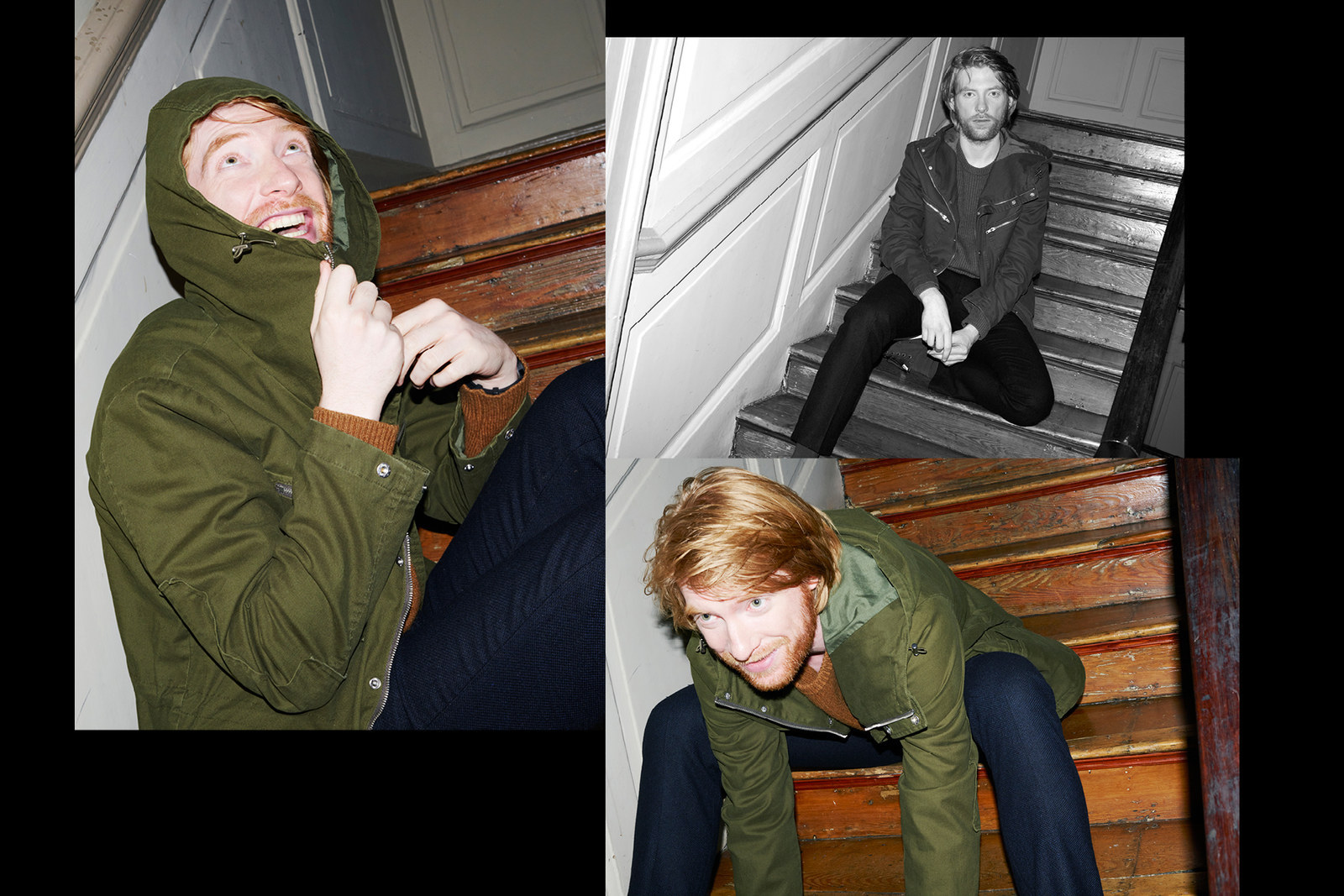
A major catalyst for the buzz Gleeson got from nailing one of The Revenant’s impossibly ambitious sequences came from the premium he places on his larger body of work. "The way I think of most actors, I think, is as a career, a whole career, like what you leave sort of thing, for want of a much less arsey term," he said with a chuckle.
And audiences have started to notice. At the premiere of Ex Machina at the SXSW Film Festival last March in Austin, Gleeson was joined onstage for a post-screening Q&A with Garland and Oscar Isaac, his co-star — both for that film and for The Force Awakens. The first person to the mic asked all three men if any of them had watched an excellent film they'd made like Ex Machina, and thought, with pride, Fuck, that's what I'm going to be remembered for.
"I think there's a difference between, Fuck, this is what I'm going to be remembered for!" Gleeson replied. "And, Fuck, this is what I'm going to be remembered for?!"
As the audience laughter died down, the man who had asked the question wished Gleeson and Isaac good luck "on the next little sci-fi movie you guys are in together."
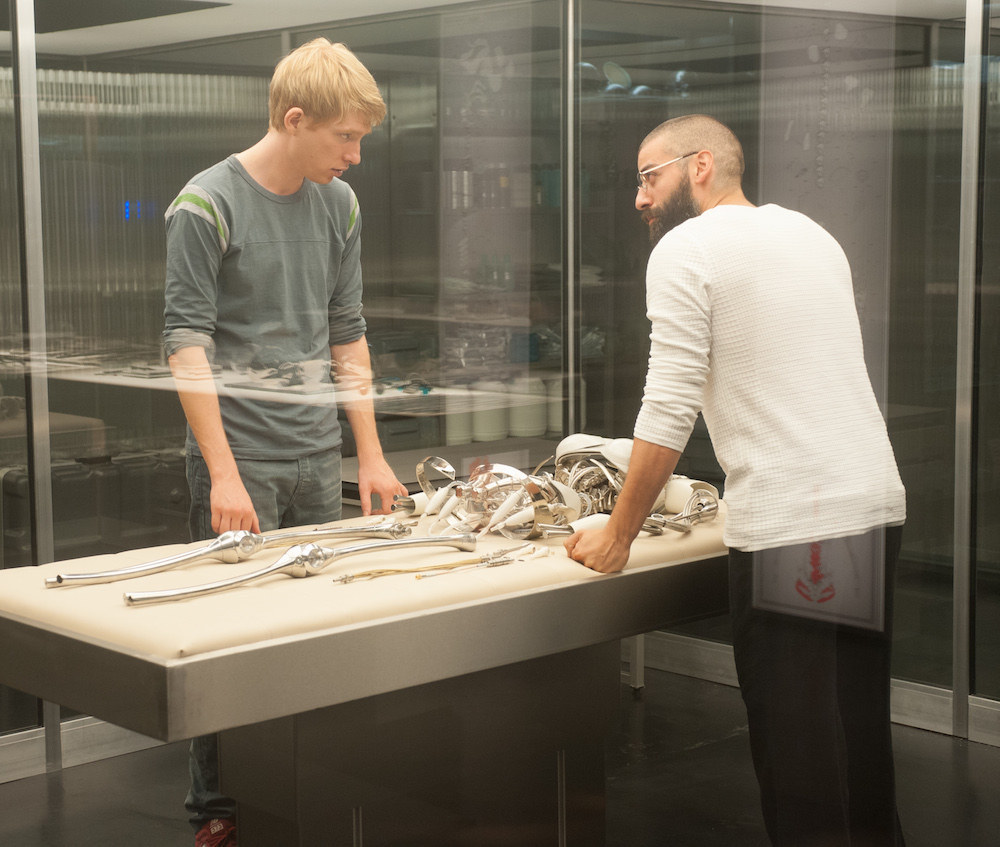
After a beat, Gleeson looked at Isaac, and couldn't help himself. "Fuck," he said, "that's what I'm going to be remembered for."
It's a funny line, and Gleeson made clear he only meant it that way when asked about it over lunch six months later.
"When I got into Harry Potter, people did tell me, 'Get ready. Things are going to change,'" he said. "Nothing changed. I mean, nothing changed. The odd night out, somebody would say, 'I love Bill Weasley.' That was it. And it wasn't they love me, they just love Bill Weasley. So there's no point in my stressing about Star Wars coming out. So if it happens, then I'll have to just deal with it."
He began rubbing his head. "And, like, if you complain about it, no one gives a shit," he said, like he felt he shouldn't really give a shit either. "So I don't feel too conflicted about it — yet. Maybe the answer will be different in December. I don't know."
Gleeson does not have a publicist, and even with the media whirlwind of Star Wars and The Revenant that was looming on his calendar, he had no plans to get one. He has agents in New York and Los Angeles, but the bulk of Gleeson's career is still handled by his agent in Dublin. "I just like having a small team," he said, before immediately wincing at his own pretension. "That sounds so L.A., doesn't it? A team? Oh god! But yeah, that's the reality of it."
With seven movies opening over the last two years, Gleeson's had to do his fair share of press, which includes talking about himself, and he is just too naturally personable — and voluble — to be the sort of self-serious actor who actively tanks an interview. (Gleeson interrupted himself three separate times during our initial interview to apologize for the length of his answers.) But he also really, really, really does not want to become famous.
"When I was younger, I was quite unforgiving of the notion of celebrity, because I would see people and I would assume that they were asking for what they were getting, in terms of being chased down the street by morons with cameras and all that sort of stuff," he said. "I find that hugely stressful. And I just don't understand it. I totally don't get it. I have no interest."
He paused, holding his breath in the way one does when considering whether to drop a particularly celebrated name.
"Before I knew Angelina," he said finally of his Unbroken director, "I had no interest over what she did over the weekend. I had interest in what her next movie was going to be, and if it was going to be good, and what she was going to be doing, because I really liked her." His voice, for the first time, sounded strident, annoyed. "But that was it. That was as far as the interest went."
When asked if he was considering whether or not to call her Angie, like he did in their conversation in last June's Interview magazine, Gleeson nodded vigorously. "I totally had that in my head just now: Do I call her Angie or Angelina?" he said with a chuckle. "Yeah. Angie. I know her. She's lovely."
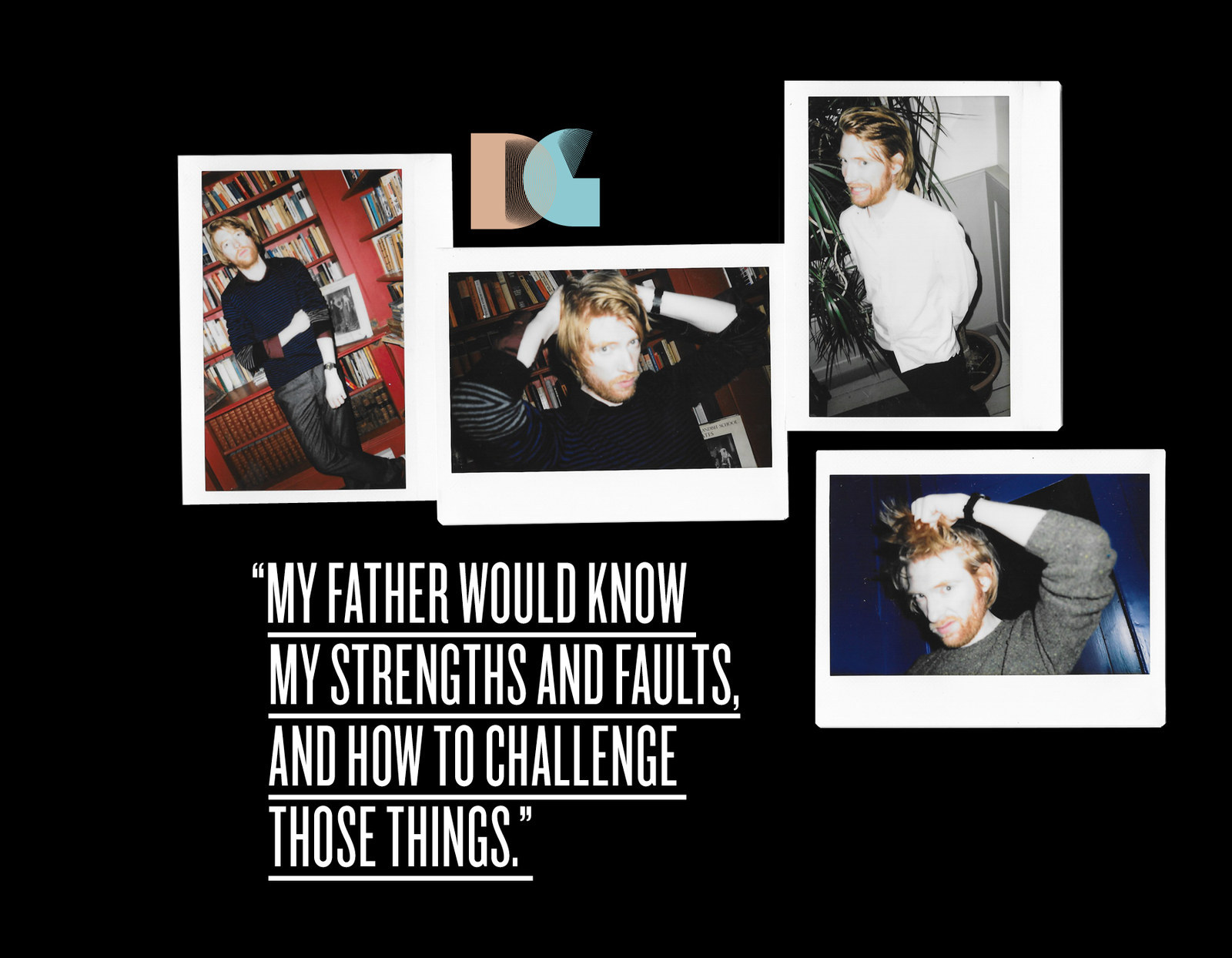
Of course, Gleeson did choose a profession where fame is usually the main by-product of success — especially when acting in what is on track to be one of the most successful movies of all time. But it's not until we started talking more in depth about his father that it became clear how much Brendan Gleeson's far-ranging career — and the celebrity that came with it — has affected Domhnall's thinking about the nature of fame. In America, the elder Gleeson is best known as Mad-Eye Moody in the Harry Potter films, as well as for his supporting roles in big Hollywood productions like The Village, Mission: Impossible II, and Braveheart. But he's also won major acclaim for his leading performances in Irish dramas like 1998's The General, 2008's In Bruges, and 2011's The Guard. “Walking through Dublin with my dad, people recognize him very often," Domhnall said humbly.
Brooklyn director John Crowley put it differently: “Anybody who doesn't recognize Brendan would be something to comment on, you know? Everybody knows who Brendan is in Ireland. I would confidently say that." (Indeed, Brendan Gleeson's publicist said that the actor's packed shooting schedule made him unavailable for an interview for this story.)
Hollywood is lousy with examples of children of celebrities whose sense of the world, and of themselves, have been irretrievably warped by their parents’ fame, especially if they become performers as well. And the Gleesons are something of a showbiz family: One of Domhnall's younger brothers, Brían, is also an actor. (He played one of the dwarves in 2012's Snow White and the Huntsman.) But to hear Domhnall explain it, the organizing principle of the Gleeson home was always about the craft of acting, and not the spoils of success.
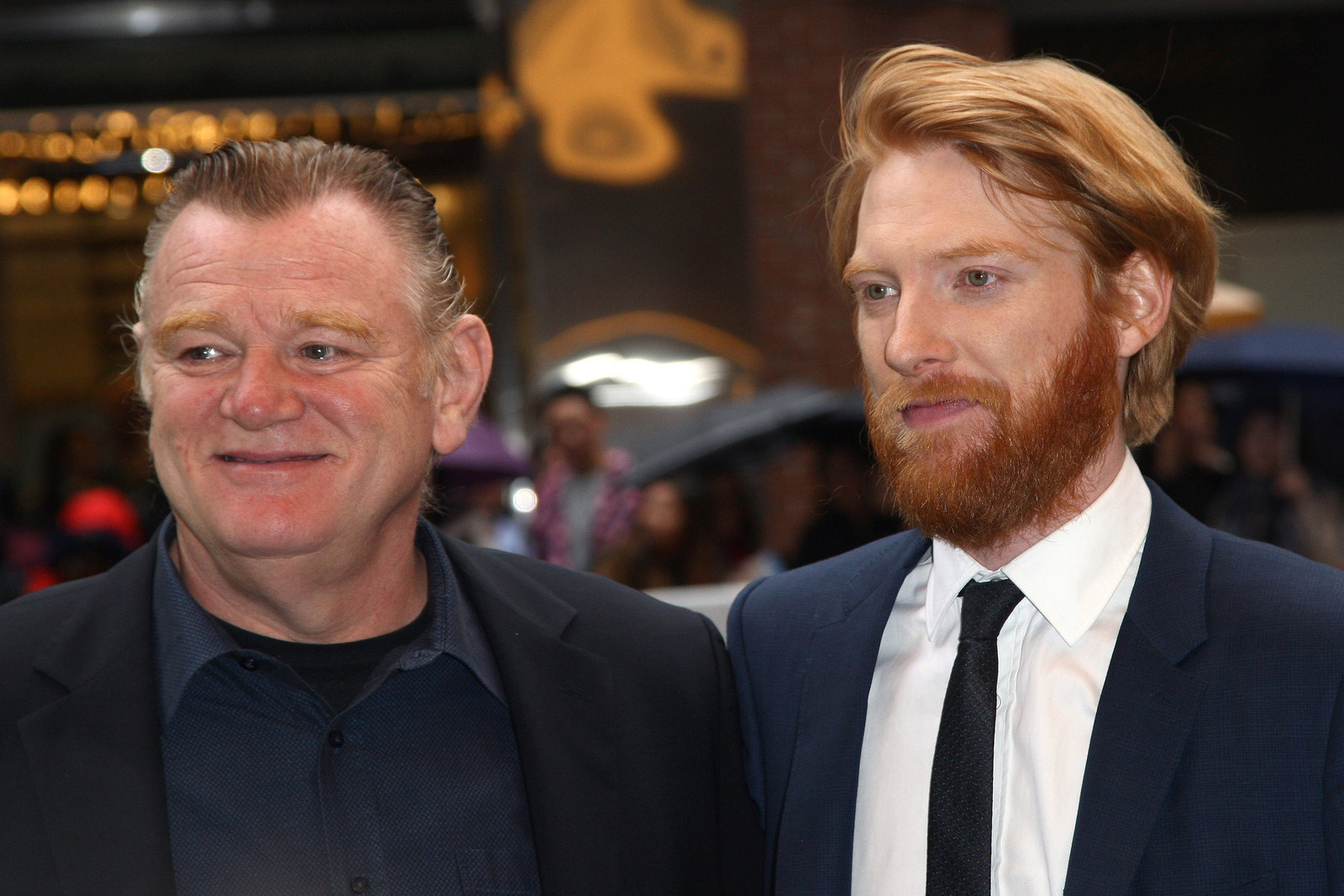
"My father will read scripts that I send him, and tell me what he thinks," he said. "He would know my strengths and faults, and he would know how to challenge those things. … Sometimes we'll disagree, which means that you think about the character in a way that is not one-dimensional, which is really important. There's no beginning or ending to the ways that we can talk about those things."
One of those discussions led to Gleeson suggesting the three of them mount a production of Enda Walsh's 2006 play The Walworth Farce, a dark comedy about a father and his two sons who are locked in a perpetual re-creation in their London flat of their last day in Ireland. So they did, in Dublin, during Gleeson's two-month break from shooting The Revenant. "It was the best job I ever did," he said. "I couldn't be prouder of it."
While Gleeson is clearly not eager for his celebrity to equal (let alone exceed) his father's, it's equally obvious that in just about every other respect, he sees his father's professional life as a model for his own. "When I look at the great performances that he's given, I just think I haven't approached anything like that in my work yet,” he said. “I would love to find the role that you leave behind in the same way that he has done with The Guard, In Bruges, The General, or Calvary, these great, great movies."
There is one obvious, unambiguous benefit, however, to more people learning who Domhnall Gleeson is that even he is looking forward to: They will also, presumably, learn how to pronounce his name.
"Is it wrong to say, 'I hope so'?" Gleeson said while slamming his hand on the table in laughter. "Because that sounds like a wish for some degree of fame. If everyone knew how to pronounce my name, they wouldn't write crazy stuff on my coffee cups. That would be good."
